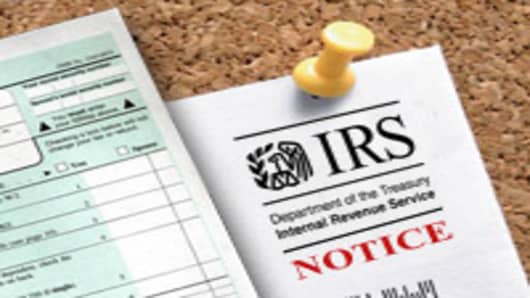So what’s left?
Tax policy.
And because of the looming deadline of the expiration of current tax policy resulting in huge tax increases, it’s an issue that has to be dealt with.
The White House tried to make a class-warfare argument to win support for raising taxes on higher income earners, but with the economy skidding, economists are arguing that any tax increase could be risky. Even some Democrats are now joining in opposition to any new tax increases. The White House isn’t willing abandon its intent to raise tax rates on higher incomes, so it will try to get its way by making the cost of voting against a tax increase a lot more expensive.
Reports emerged this week that the White House is considering a raft of new tax cut measures— including a permanent reduction in the research and development tax credit, a payroll tax holiday, additional targeted tax cuts for small businesses and other measures.
By loading up the popular tax cut side of the ledger, Democrats and the White House will hope to put Republicans in a box, trying to ”win” either way: if Republicans split and join Democrats, the White House wins; if Republicans oppose the package, they’ll be branded as obstructionist and willing to hold up middle-class tax cuts to “protect” the wealthy.
The tax trap is an old, tried and true strategy, but it won’t work in this political environment for two reasons:
- The simple message that Democrats are increasing taxes (even as they propose other tax cuts) is far more salient with voters. Unless Democrats abandon any tax increases, they cannot carry voters with this message. The perception that Democrats want to tax more in order to spend more is firmly entrenched in the minds of likely voters.
- Americans have had it with Washington fights. Another hot legislative battle with shrill rhetoric will be offensive to voters, and deepens their disgust with Washington. The pox-on-all-their-houses reaction hurts Democrats far more than Republicans as they have many more rickety congressional seats to defend in mid-term elections.
The White House would do best to make a deal with Republicans extending current tax policy on all income brackets, maintaining (or lowering) low pro-growth rates on capital and investment, and making permanent the R&D tax credit.
Businesses will respond positively to certainty in tax policy, markets will cheer — instilling much-needed confidence, and Americans will appreciate a rare moment of bipartisan comity.
Tony Fratto, a CNBC contributor, is Managing Director of Hamilton Place Strategies – a strategic economic policy and communications firm based in Washington, DC. He is a former White House Deputy Press Secretary for the George W. Bush Administration and Assistant Secretary of the Treasury. You can follow him on Twitter at http://twitter.com/TonyFratto.


